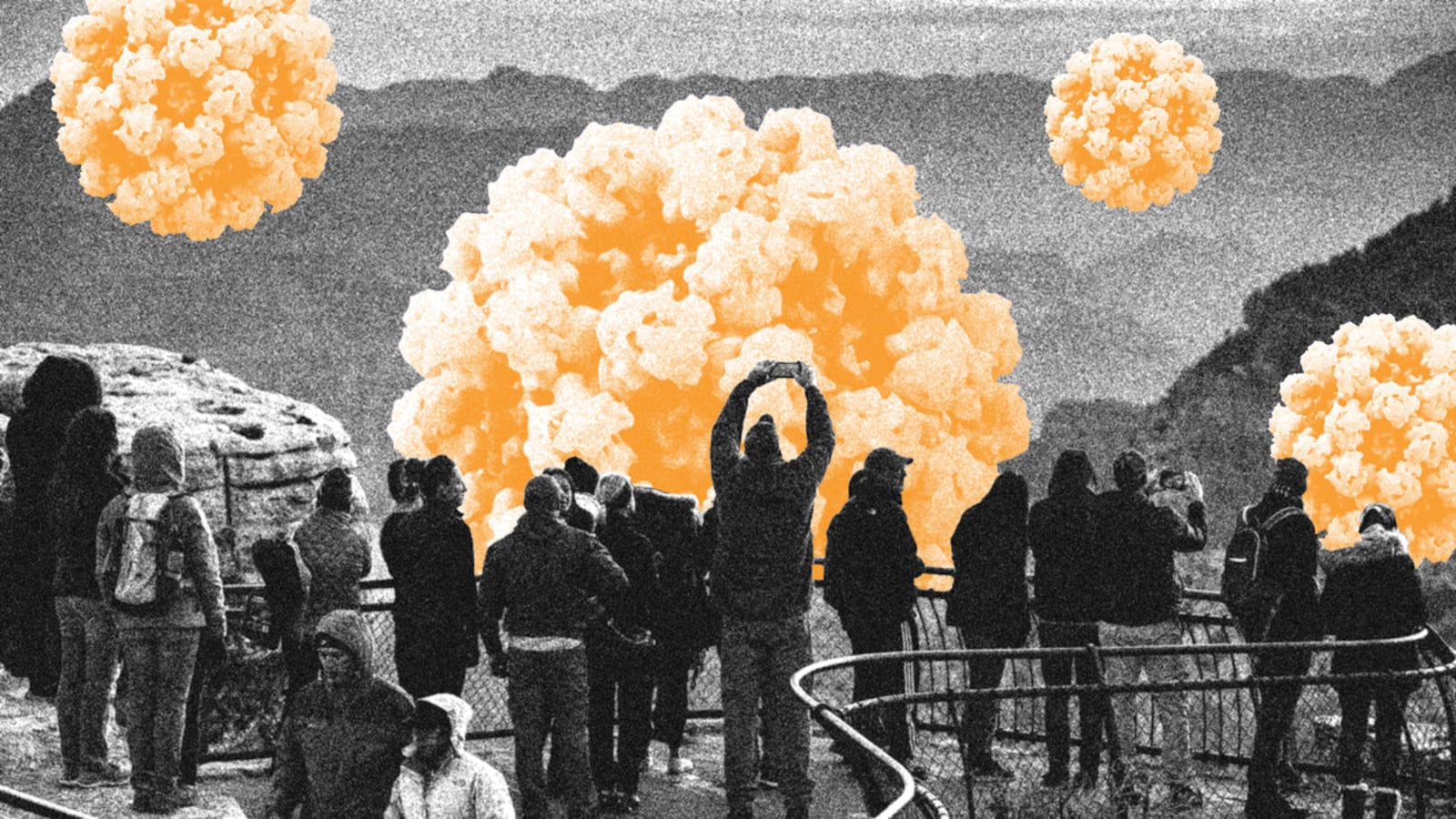While hiking in Grand Canyon National Park, Kristi Key came across a concerning site: four hikers resting on the side of the trail, looking a little worse for wear. After learning that two of the hikers had spent the previous night violently vomiting, Key offered to call a rescue team, but the group declined. But when she saw them sitting in the same spot on her return trip, with one of the hikers still vomiting, she knew it was time to call for help.
Eventually, a chopper showed up, flying the nausea-stricken man to safety. But the experience stuck with Key, who told The Daily Beast that she has hiked hundreds of miles in the Grand Canyon and never come across hikers whose illness was unrelated to dehydration or heat—until now. After a once-healthy member of the unlucky group fell ill later that day, Key began to suspect that a virus was to blame.


Key is not alone in her tale of woe, as the Grand Canyon National Park is currently experiencing an outbreak of a gastrointestinal illness that closely resembles norovirus, a disease that can cause vomiting, diarrhea, cramping, body aches, and mild fever. According to the CDC, norovirus is “very contagious” and anybody can get infected—the disease can be spread through direct contact with an infected person, contact with a contaminated surface, or ingestion of contaminated food or drink. While the symptoms can become intensely unpleasant, norovirus rarely leads to death or serious illness.
As of June 10, the park knew of 118 people who had become sick with a gastrointestinal virus, as was reported by Grand Canyon News. The infections have spanned 16 different trips on the Colorado River and in the backcountry.
Most cases of the illnesses were recorded in May, with the most recent on June 2. According to Jan Balsom, chief of communications, partnerships, and external affairs at the Office of the Superintendent at Grand Canyon National Park, the park has been issuing alerts about the gastrointestinal virus since May 20.
“We haven’t seen something like this kind of outbreak in about 10 years,” Balsom said. In fact, Balsom herself had a run-in with what she called the “unusual” proliferation of gastrointestinal issues when a woman on a river trip she recently attended came down with a stomach virus less than 12 hours into the journey. The woman, however, does not know whether she was infected with norovirus or another illness, a predicament that illustrates many of the difficulties of investigating the outbreak.
There is a limited amount of time during which one can collect stool samples to confirm a norovirus infection, Balsom said. River trips typically outlast that critical window, meaning that it is often impossible to precisely diagnose an individual’s illness.
The park is asking visitors to make sure their water is not just filtered, since norovirus is not killed by point-of-use filters. It must be either chemically disinfected or boiled. It also asks that visitors not drink from waterfalls, pools, or streams.
A public health team composed of a variety of state and federal offices is investigating the outbreak. Balsom explained that the Colorado River and the backcountry are unconnected areas, adding to the mystery of the cases.
“[Officials] have been following up with interviews from participants from trips who have gotten sick,” Balsom said. “They’ve been testing poop scans to try to determine whether or not it is noro.”
In a statement to The Daily Beast, an official at the National Park Service Office of Public Health described the outbreak as a “heightened GI-illness” and said an investigation will “consider all potential sources. It is unknown at this time what the source of the illness is.”
Individuals have taken to social media to share their stories of trips cut short by vomit, posting lengthy sagas about hikes gone horribly wrong.
One man wrote about being overcome with vomiting in the middle of the night, with his bout of nausea lasting from 1 a.m. to 5 a.m.
“Let me tell you,” he wrote, “being sick & weak and hiking up 1,200 feet in elevation in 1.5 miles isn’t a move.”
In another post in May in the “Grand Canyon Hikers” Facebook group, a woman notified others about the norovirus outbreak and described falling ill just after leaving the canyon.
“I could not have hiked out or cared for myself if I’d begun vomiting in the canyon,” she wrote. “GC’s public health officials are tracking the situation. Apparently it’s a big one.”






